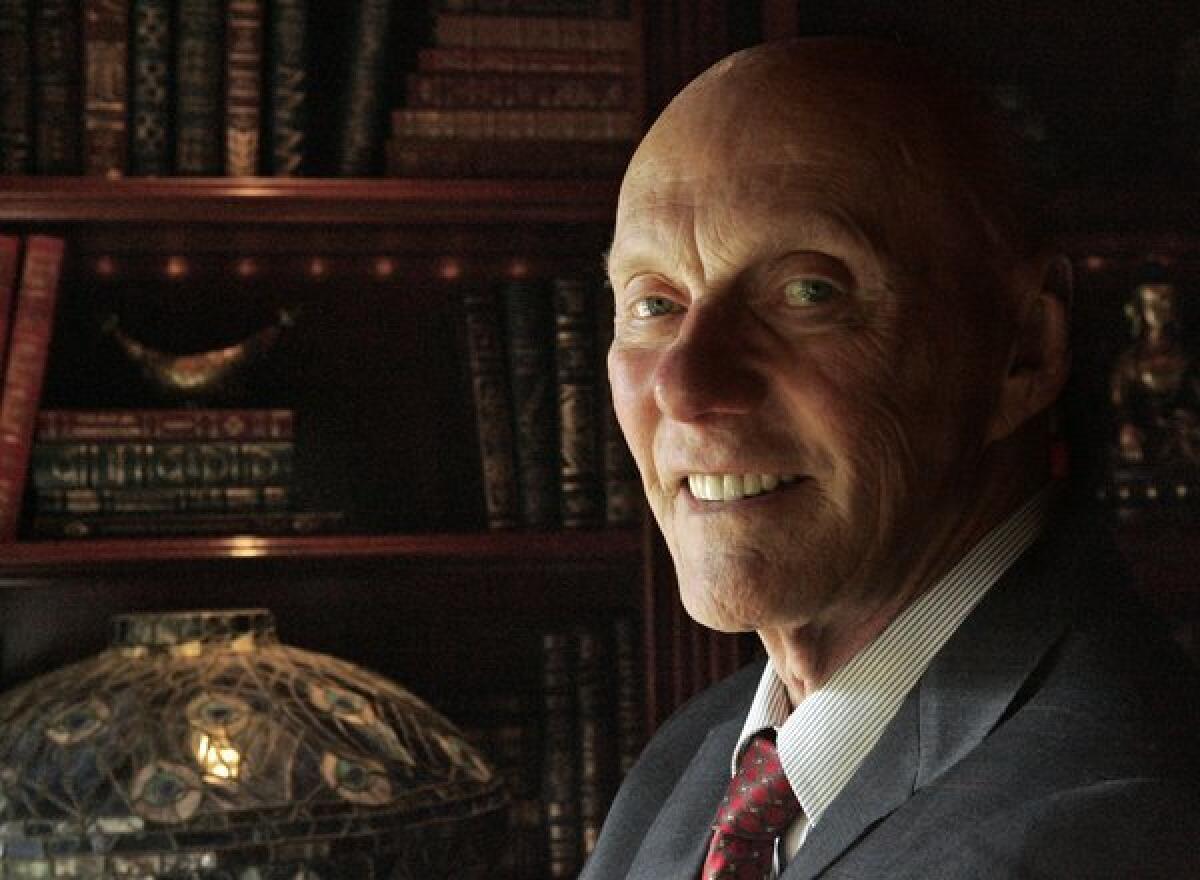Fred Kavli dies at 86; promoted scientific research worldwide

- Share via
Fred Kavli, a Southern California philanthropist, physicist, entrepreneur, and founder and chairman of the Kavli Foundation, which promotes scientific research worldwide, died Thursday. He was 86.
Kavli passed away peacefully at his Santa Barbara home about a year after contracting cholangiocarcinoma, a rare form of cancer, the foundation said in a statement.
The Southern California-based foundation, which awards $1-million cash prizes to spark cutting-edge research, was created by Kavli in 2000 to promote science for the benefit of humanity. The foundation includes research institutes on three continents that specialize in the study of astrophysics, nanoscience, neuroscience and theoretical physics.
“This is a painful loss for the foundation and for all of science,” said Rockell N. Hankin, vice chairman of the foundation. “We can only take comfort in his extraordinary legacy, which will continue advancing critically important research that benefits all of humanity, and supports scientific work around the globe.”
A naturalized U.S. citizen, Kavli was born 1927 on a small farm in Eresfjord, Norway.
His fascination with science began when he was a youngster living on the farm, nestled in the mountains along the Eira River. Kavli said the northern lights held him spellbound.
“I used to ski across the vast white expanses of a quiet and lonely mountaintop,” Kavli said when he announced his prizes in 2006 in Oslo. “At times, the heavens would be aflame with the northern lights, shifting and dancing across the sky and down to the white-clad peaks. In the stillness and solitude ... I pondered the mysteries of the universe, the planet, nature and of man. I’m still pondering.”
He studied physics at the Norwegian Institute of Technology, now known as the Norwegian University of Science and Technology, in Trondheim.
Kavli financed his studies with proceeds from a small business he and his brother ran during World War II making wood briquettes that could be used as fuel for modified automobiles.
“I was always ambitious,” Kavli told The Times in a 2008 interview.
After receiving an engineering degree in 1955, Kavli moved to Canada and came to the U.S. a year later and settled in Southern California. He founded the Kavlico Corp. in 1958. The company became a major supplier of sensors for aeronautical, automotive and industrial applications that were used in projects such as the SR-71 Blackbird and the Space Shuttle.
The foundation has endowed research institutes at universities worldwide, including Columbia University, Yale University, the University of Cambridge, Peking University, and the Norwegian University of Science and Technology.
In 2008, the foundation began awarding its prizes to recognize scientists for their seminal advances in astrophysics, nanoscience and neuroscience. Consisting of a scroll, a gold medal and $1-million cash award, a Kavli Prize in each of these areas is awarded every two years by the king of Norway in a ceremony in Oslo.
Kavli is survived by two children and nine nephews and nieces.
Twitter: @LAJourno
More to Read
Sign up for Essential California
The most important California stories and recommendations in your inbox every morning.
You may occasionally receive promotional content from the Los Angeles Times.











